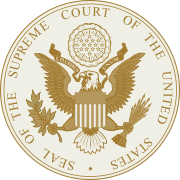I write now from the nation’s capital, one of my favorite destinations.
I write now from the nation’s capital, one of my favorite destinations. For one who dwells on history and politics, this is the place to be and to return to. During these few days, I took a kid to Ford’s Theater and then to Mount Vernon. Today, I hope to amble throughout the National Mall where I will stand in awe before the great monuments that remind us of what we all need to be reminded of. We will see the monument to Martin Luther King, Jr., which has been in the news because objections have been raised to the inscription carved into the monument. Words matter.
The Korean War Veterans Memorial, one of the most moving memorials I’ve ever seen, is introduced by stark words of enormous power and meaning: Freedom is Not Free.
Many Washington, D.C. license tags are adorned with the the words, Taxation Without Representation, a demonstration of citizen protest that is unthinkable in so many other world nations.
I recall years ago, when a protest developed when the Smithsonian Institution included a written description in an exhibit of the Enola Gay, the small airplane that dropped a heavy payload on Hiroshima on August 6, 1945. After vehement protests from American veterans and others, the words were withdrawn.
The United States Supreme Court heard and read many words a few weeks ago on the Patient Protection and Affordable Care Act, affectionately and derisively referred to as Obamacare. The Court heard extended arguments over a 3 day span, a marked departure from the brief period of time usually allotted for oral arguments.
After those 3 fascinating days, tens of thousands of words were spoken and written trying to divine where the justices stood on the issue. Would the individual mandate be struck down? Would parts of Obamacare be preserved? Would Justice Kennedy be the deciding vote? What judicial horse trading would be necessary for one side to secure 5 votes?
The critical question that emerged once again from these proceedings is why does Justice Thomas never ask any questions during oral arguments? Where are his words?
As everything else that occurs in this town, there is always a political prism that folks peer through. I read one piece suggesting that Republicans win regardless of what the Court decides. If Obamacare is declared constitutionally invalid, then the president is weakened. If the Court upholds the law, then the Republicans can run hard against it in the upcoming election. I don’t agree with this analysis, but this is an example of the drivel that dribbles freely around here.
The truth is, of course, that no one has a clue what the Court will decide. Court watchers know that justices ask questions during oral arguments for many reasons, which may not reflect their views or predict a decision. Yet, predict and pontificate we must. The president had to walk back from his own comments this week, when he opined that the Court should uphold the law, as if the judiciary were not a coequal branch of goverment. Marbury vs Madions anyone?
I’ll make my own prediction here. Readers know that I am hostile to Obamacare. I predict that if the law is upheld, that more and more folks will agree with me as time goes on. Medical costs will continue to rise and medical quality will decline. The medical profession will be suffocated by toxic regulations, restrictions and oversight.
However, I don’t think that the Court should strike down the law just to please me or because the president’s health care law will fail. If you reject judicial activism, then you have do so consistently. It’s not the Court’s job to save a worthy program or to make policy. In my mind, they are charged to answer one question. Is it legal?
Last year, I took the kids to the Supreme Court, and we peered into the chamber where 9 citizens hold enormous power and responsibility. Engraved in the building’s façade are the words, Equal Justice Under Law, an ideal we strive for, but don’t always achieve. Yet, there is no better system.
Thomas Jefferson spent some time in Washington, D.C. also. He was a magician with words, an alchemist who could transform mere words into a harmonious symphony. He wrote to Thomas Paine, another man whose words wielded enormous influence; “Go on doing with your pen what in other times was done with the sword.” Words mattered then, and they still do.


